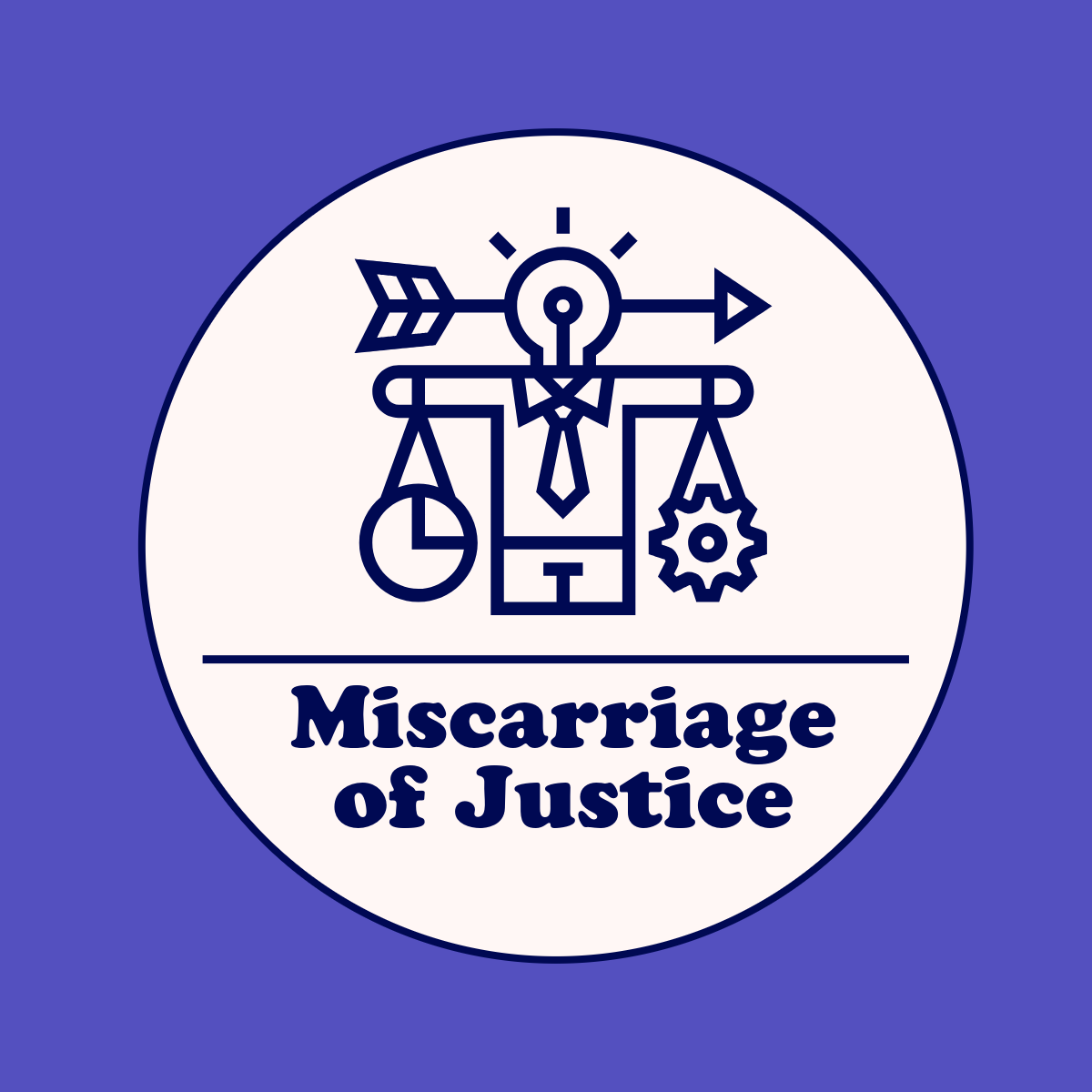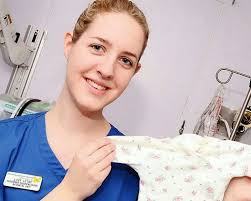


£0 of £250,000 raised
The case against Lucy Letby, a neonatal nurse convicted of killing and harming infants in her care, has sparked widespread debate, with many arguing that her conviction is a miscarriage of justice. Letby maintains her innocence, and her supporters believe there are serious flaws in the evidence that led to her conviction, which raises doubts about the fairness of her trial.
Flaws in Medical Evidence
One of the central issues is the lack of direct forensic evidence linking Letby to the deaths. The prosecution built its case on circumstantial evidence, relying heavily on patterns in Letby's work schedule and the timing of the incidents. However, critics argue that correlation does not imply causation. Infants in a neonatal unit are highly vulnerable, and other potential medical explanations for their deaths were not thoroughly explored. Natural causes, pre-existing conditions, or hospital mismanagement could have contributed to the deaths.
Several independent medical experts have raised concerns about the evidence used to convict Letby, including the reliability of the clinical data presented in court. In some cases, the causes of death were ambiguous, and the prosecution dismissed alternative explanations too quickly, relying instead on speculative interpretations of the circumstances.
Lack of Motive and Character Evidence
Supporters also question the absence of a clear motive. Lucy Letby was described by colleagues and friends as a caring, dedicated nurse. There was no history of malicious behavior or any indication that she harbored ill will toward the infants in her care. The lack of a plausible motive has led many to question why she would suddenly engage in such actions.
The prosecution used personal notes found in Letby’s home, which included emotional statements like "I am evil, I did this." However, the defense argued that these notes were the writings of a distressed and overwhelmed nurse struggling with the gravity of being blamed for deaths she believed she had no control over. They could easily have been misinterpreted as confessions, when in fact they reflected her mental anguish.
Hospital Failings and Management Pressure
Another significant factor in the case is the hospital’s own potential failings. Some believe that the hospital, facing pressure to find someone responsible for the infant deaths, may have fixated on Letby without adequately investigating other possibilities. There were documented issues at the hospital, including staffing shortages and equipment problems, which could have played a role in the deaths but were not fully scrutinized during the investigation.
Moreover, some medical professionals believe that the hospital was eager to find a scapegoat to avoid damaging its reputation, which may have influenced the investigation’s direction. The focus on Letby as a suspect might have overshadowed the need to thoroughly explore all possible explanations.
Calls for Appeal and Retrial
As more people scrutinize the case, calls for a retrial or appeal have grown. Legal experts and advocacy groups argue that the case against Lucy Letby is riddled with unanswered questions, gaps in the evidence, and procedural flaws. They emphasize the importance of ensuring that the justice system does not rush to judgment, especially in such emotionally charged cases involving the deaths of infants.
Supporters of Letby’s innocence are campaigning for a fresh look at the evidence, hoping that a re-examination of the case will reveal alternative explanations and ultimately exonerate her.
In conclusion, the case against Lucy Letby is far from clear-cut. Many believe that the evidence used to convict her is flawed, lacking in scientific rigor, and heavily reliant on circumstantial connections rather than direct proof. The fight for her innocence continues, driven by the conviction that she may have been wrongfully accused and convicted in a rush to find someone responsible for the tragic deaths of vulnerable infants.
About Lucy Letby
The Story of Lucy Letby: A Background of Compassion and Unanswered Questions
Lucy Letby, a nurse who spent her career caring for the most vulnerable patients—premature and sick newborns—became the center of one of the most shocking criminal cases in recent memory. Described by those who knew her as kind, caring, and deeply dedicated to her profession, Letby’s life took a devastating turn when she was accused and later convicted of harming and killing infants in her care. But to many, the charges against her raised serious questions, leaving them to wonder: could Lucy Letby be innocent, and if so, how did she find herself at the center of such accusations?
Background: A Passion for Nursing
Born and raised in Hereford, England, Lucy Letby was known for being a quiet, hardworking individual who had always wanted to become a nurse. She attended the University of Chester, where she completed her nursing degree and went on to work at the neonatal unit at the Countess of Chester Hospital. Colleagues and friends spoke of her as compassionate and dedicated, with a genuine passion for caring for premature babies, a field that requires not only skill but immense emotional resilience.
For years, Letby worked without incident, providing care to the most fragile patients. She often worked long hours, dealing with the immense pressure and emotional toll that comes with treating critically ill infants. Her life appeared ordinary; she had a small group of close friends, no significant financial or personal troubles, and no history of violence or cruelty.
The Accusations and the Question of Motive
Everything changed when the hospital began investigating a series of unexplained infant deaths and sudden collapses in the neonatal unit. These incidents occurred between 2015 and 2016, and when patterns emerged showing that Letby had been present during many of the incidents, suspicion fell on her. The prosecution painted Letby as a nurse who, for reasons that remain unclear, turned to harming the very babies she was supposed to care for.
But the case against Letby left many puzzled. One of the biggest unanswered questions was motive: **why would a nurse who had dedicated her life to saving infants suddenly begin harming them?** Unlike many criminal cases, where a clear motive—financial gain, jealousy, revenge—can be identified, the prosecution in Letby’s case struggled to provide a reason why she would commit such acts.
Letby had no history of mental illness, no personal vendettas, and no financial strain that might have driven her to such actions. The prosecution suggested that she enjoyed the attention and chaos caused by the sudden collapses, but this theory seemed flimsy to many, especially in light of her otherwise unblemished record and her compassionate demeanor.
The Prosecution’s Case: Circumstantial Evidence
Without a clear motive, the case relied heavily on circumstantial evidence. Letby had been on duty during the deaths, and the prosecution claimed that her presence was the only common factor. They pointed to handwritten notes found in her home, in which she had written emotional statements like "I am evil" and "I did this." But the defense argued that these notes were not confessions; instead, they were the writings of a woman in emotional distress, overwhelmed by the weight of being blamed for events she did not understand.
There was no direct forensic evidence linking Letby to the deaths. No drugs or toxic substances were found in the babies’ systems that could be attributed to her, and no witnesses had seen her harming any infants. Instead, the prosecution relied on patterns—Letby’s presence during incidents, and the timing of these tragic events.
Supporters' Arguments: Hospital Failings and Miscarriages of Justice
Many believe that Letby is the victim of a miscarriage of justice. Supporters argue that the hospital may have rushed to blame her, eager to find someone accountable for the tragedies. They point to systemic failings at the hospital, such as understaffing, faulty equipment, and poor management, which may have contributed to the infants' deaths.
Moreover, there are those who believe that medical explanations for the deaths—such as pre-existing conditions or natural causes—were dismissed too quickly. In some cases, experts raised concerns about the quality of the medical evidence used to convict Letby, arguing that it was too ambiguous to definitively prove guilt.
Supporters also highlight that Letby’s supposed "confession notes" were taken out of context. They argue that these notes reflected her anguish at being blamed for events she could not control, rather than an admission of guilt.
The Ongoing Debate
Lucy Letby’s case has sparked intense debate about justice, medical responsibility, and the potential for wrongful convictions. For those who believe in her innocence, the lack of a clear motive, the reliance on circumstantial evidence, and the possibility of hospital failings all point to a rushed conviction that overlooked alternative explanations.
For Letby, the nightmare of being convicted of crimes she claims she didn’t commit has changed her life forever. Supporters continue to fight for her appeal, hoping that a re-examination of the evidence will clear her name. Whether or not that happens, her story raises important questions about the complexities of justice, the fallibility of medical systems, and the human cost of wrongful convictions.
